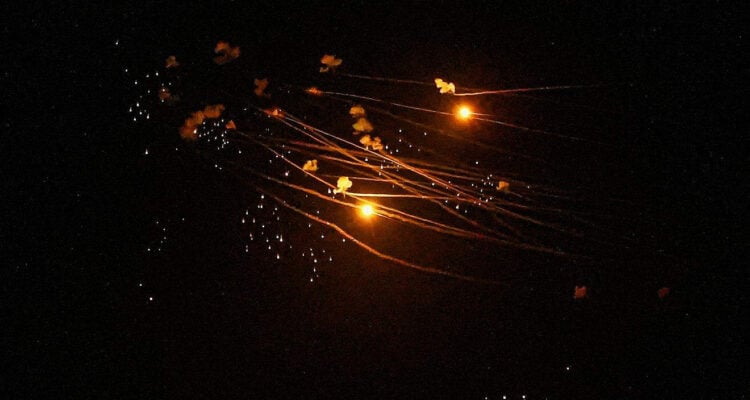The IAF considers the place the couple was traveling to be an “open area” that is not sheltered by defense systems.
By Vered Weiss, World Israel News
After the tragic death on Tuesday of Nir and Noa Baranes whose car was hit by a Hezbollah rocket in the Golan Heights, a commonly asked question is, “Why weren’t the missiles that killed the couple intercepted?”
The IDF investigated the deaths of the couple and concluded that the IAF considers the place they were traveling as an “open area” that is not sheltered by defense systems and interceptors weren’t sent to destroy the rockets.
Security officials concluded that the public needs to be warned in such areas with signs, instructions, and public service announcements on how to stay safe in these “open areas.”
In addition, due to the complexity of the GPS, there is not an alarm everywhere, and on the section of the road, the couple may not have heard an alarm.
The people who heard an alarm would have entered protected areas.
The IDF recognized the need to update areas affected by GPS disruptions and find ways to issue location-based warnings.
People traveling in areas where GPS disruptions may occur are encouraged to use an application and select an area to be certain of receiving notifications even if the GPS is disrupted.
In addition, the public should beware when driving close to army bases, which Hezbollah often targets.
Often, when people travel in these areas, there is nowhere to seek shelter when they hear the alarms.
“Every time I drive by the army bases in the Golan, like all of us here , I feel fear,” said Lilach, a resident of the Golan last night.
“And then it happened and Hezbollah’s missiles hit a couple of residents who were hit and killed while driving in their car. And once again we do not respond. I don’t understand how the ground isn’t shaking here now, from the IDF artillery fire at Lebanon,” she added.





